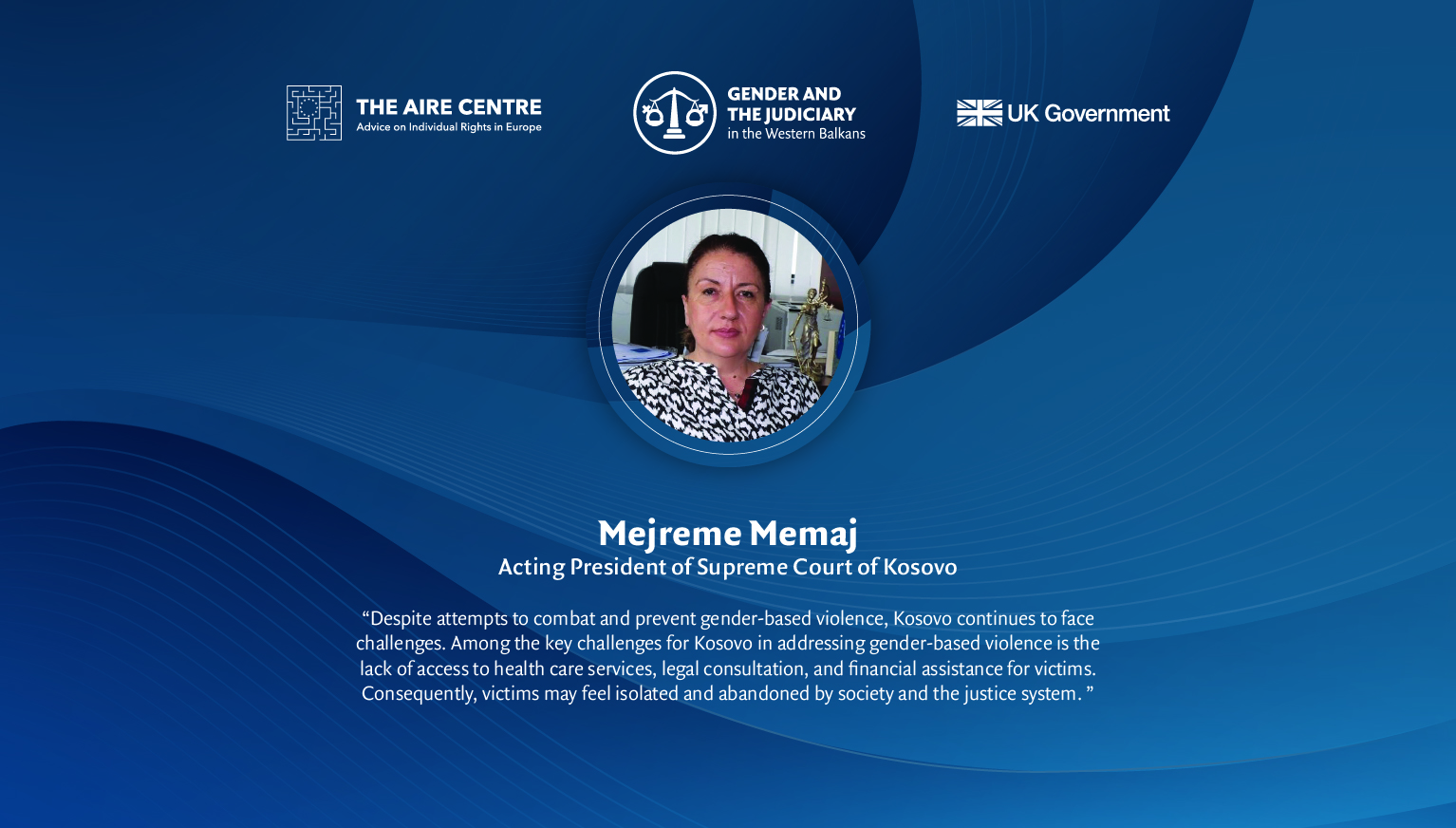Advancing Justice and Empowering Women — Interview with Kosovo’s Acting President of the Supreme Court
26 May 2023
As the Second Gender Equality and Western Balkans Judicial Forum approaches, we are looking into Kosovo actions in combating gender-based violence and discrimination. In an interview with Mejreme Memaj, Acting President of the Supreme Court of Kosovo and member of the Gender Champions in the Judiciary Network (GCJ Network), she highlighted the challenges faced by the country and the importance of justice institutions in addressing gender-based violence.
Crucial steps are still needed in addressing persistent challenges regarding gender-based violence in Kosovo. Access to healthcare services, legal consultation, and financial assistance for victims remains limited, leading to feelings of isolation and abandonment.
“Kosovo, like the international community, is actively engaged in efforts to combat gender-based violence. However, despite attempts to combat and prevent this violence, Kosovo continues to face challenges. Among the key challenges is the lack of access to health care services, legal consultation, and financial assistance for victims. Consequently, victims may feel isolated and abandoned by society and the justice system. One of the main reasons for Kosovar women hesitating to report violence is the patriarchal nature of society, where it is traditionally believed that women should submit to their husbands”, explained judge Memaj.

To effect cultural change, Mejreme Memaj emphasises the necessity of raising public awareness and education about gender-based violence.
“If we desire to change this culture, raising public awareness and education about this problem is necessary. This can contribute to increasing awareness regarding the respect for women’s rights. For me, as a woman and a judge, it is crucial that justice institutions, including the police, prosecution, and courts, independently and impartially handle cases of gender-based violence. This should ensure fair and equal access to justice for both women and men. Perpetrators of violence must be held accountable under the law. Failure to do so can undermine people’s trust in the justice system and perpetuate a culture of impunity”, said judge Memaj.
Lastly, judge Memaj explained how the Supreme Court of Kosovo plays a vital role in the prevention and fight against gender-based violence.
“In the prevention and fight against gender-based violence, as well as potential biases in the judiciary, the Supreme Court in Kosovo has approved guidelines regarding the legal qualification and treatment of domestic violence cases. The aim is to ensure that domestic violence cases are handled with justice and provide clarity on specific legal provisions. Furthermore, the Supreme Court places notable significance on the sentencing policy, as demonstrated by the official endorsement of the sentencing policy guideline. As a court, we strive for all cases, including gender-based violence cases, to be punished according to the law and send the appropriate message to the perpetrators that gender-based violence is illegal and unacceptable in our society”, explained judge Memaj.
The upcoming Second Gender Equality and Western Balkans Judicial Forum will provide an important platform for further discussions and collaborative efforts in the fight against gender-based violence in Kosovo and the wider region.
Second Gender Equality and the Western Balkans Judicial Forum, a key regional event about judicial response to gender-based violence and discrimination, is only six days away. The Forum is organised by the AIRE Centre with the support of the Government of the United Kingdom, and it aims to tackle the question of how the judiciary can address various types of gender inequalities in the Western Balkans. This high-profile event will bring together key judicial actors from region and beyond, including representatives from European Court of Human Rights, representatives from important regional judicial and other state institutions, academics, and NGOs.